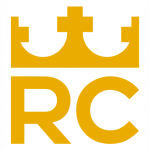


Please note that non-conjoint students pay tuition and fees directly to the Regis College finance office. A Regis College Library card is issued to non-conjoint students for the period of their course enrollment.
Non-conjoint basic students:
Note: This is filler text
This Certificate program requires seven courses (7 X 0.5 FCE) in Christian studies.
Five (5) foundational (1000-level) courses from among the historic sub-disciplines of theological studies as indicated below:
Note: This is filler text
Successful completion requires a passing grade of B- or better in each of 7 course units, and an overall course average of B-.